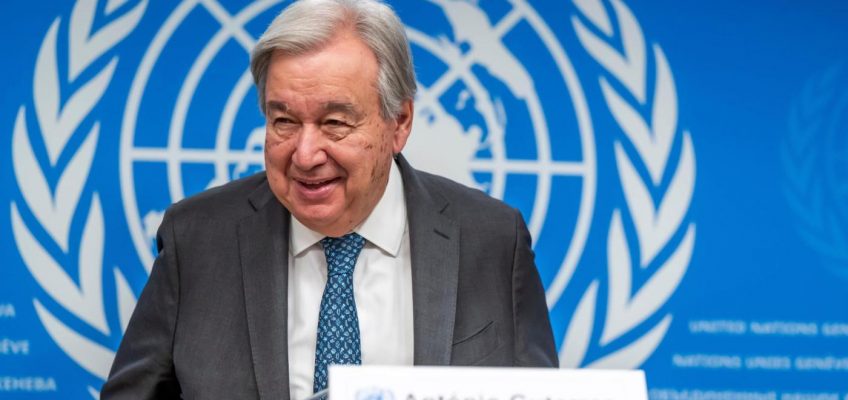Ismael Cordová-Clough slipped out before dawn most mornings, while the rest of the block slept. By 4 a.m., he was circling the same streets he grew up on, scanning corners, alleyways and factory lots for unmarked cars.
He goes by “Ish” on Facebook, where he has become a trusted but polarizing voice in Elgin’s immigrant community, documenting sightings of U.S. Immigration and Customs Enforcement and posting real-time updates. His videos often show tense, chaotic moments: neighbors being detained, agents refusing to answer questions, bystanders shouting in fear or solidarity.
Cordová-Clough, 28, recently left Elgin, but he said his feed remains a crucial part of the local resistance — especially since the Trump administration ramped up enforcement five weeks ago. Public demonstrations and chants are one way of protest, but Cordová-Clough and other organizers say they focus on evidence.
“People share old photos, misinformation all the time,” he said. “We try to verify in real time, with people who actually live here.”
Though now a sharp voice in local immigrant advocacy, Cordová-Clough didn’t start in this work. He was a student organizer and policy researcher, first drawn to activism through LGBTQ issues in middle school.
Ismael Cordová-Clough, center, and volunteer patrols meet in a downtown Elgin parking lot to discuss strategy as they look for possible ICE activity in Elgin on Sept. 17, 2025. (Stacey Wescott/Chicago Tribune)
In recent months, as arrests in Elgin have surged — sometimes reports of six in a week — Cordová-Clough said he’s watched local government, nonprofits, and even some Latino leaders remain silent. So he stepped up as a volunteer. His posts now reach tens of thousands, spreading fast whenever ICE is nearby. He delivers supplies and connects those left behind after deportation to lawyers.
As the only U.S.-born member of his family, Cordová-Clough carries a deep sense of responsibility. He’s seen firsthand how people in his community, including his family, alter their lives in the face of fear: avoiding public spaces by going to the laundromat late at night or changing jobs.
His presence may be digital now, but for people in Elgin, Ish is still on the ground.
“I’ll never fully understand,” he admitted. “But I can understand their fears and their worries and also their dreams.”
A complicated place to stand
Cordová-Clough is a queer Latino, married to a white partner, operating in a community where he’s often seen as “too much” — too loud, too soft, too visible, too Americanized.
As a kid, his parents pulled him from the dual-language program at his school to avoid an accent. They believed being “white-passing” meant success.
“I get a lot of Latinos saying that I shouldn’t be the voice because I’m not Latino enough,” he said.
He understands their discomfort, but he also believes it’s his role to push back against the colorism, racism and classism that often go unspoken in his community.
“My experience as a queer Latino man is different from a white queer man, or a Black queer man or even a straight Latino man,” he said. “We can’t build community without acknowledging that.”
He isn’t always welcome in some activist spaces, he said. He’s too unfiltered for some, too informal for others. He doesn’t work for a nonprofit and no one is funding him.
Ismael Cordová-Clough, right, livestreams federal agents detaining three men along Liberty Street on Sept. 20, 2025, in Elgin. Cordová-Clough is part of a volunteer patrol group in the area that documents federal agents in the area and livestreams their activities in order to alert the community. (Stacey Wescott/Chicago Tribune)
This has been his full-time side gig — alongside pursuing a master’s degree in public policy, with a focus on homelessness — and working at his friend’s insurance company.
“My husband and my mom don’t tell me what to do, so no one else will tell me what to do unless they’re paying me and no one’s paying me here,” he said.
He has drawn criticism from some local ICE response teams for posting sightings of immigration operations before they’re verified. But he believes people deserve to know, especially if he’s there himself. And he doesn’t think local leaders are doing enough. He said he’s not interested in backdoor deals or symbolic gestures.
Recently, after hundreds of workers at a nearby factory were laid off because of their unauthorized status, he organized a food drive for them from his garage. Community members dropped off eggs, lunch meat and diapers. Others helped sort items, assemble resource envelopes or deliver bags door-to-door.
“They were so grateful that someone was showing up to support,” Cordová-Clough said, of the men and women who were let go. “It didn’t seem so transactional.”
The cost of care
While immigration raids are the immediate threat in Elgin, other underlying issues also pull his attention, he said. Cordová‑Clough’s own story mirrors many in Elgin: moving two or three times a year, family instability, periods without a permanent place to sleep.
“In fifth grade, the sheriff came to evict us. Threw all our stuff into garbage bags,” he said. “I didn’t even understand what was happening.”
In seventh grade, his stepfather was deported after a domestic violence incident in their home. “At the time, my stepdad was the worst of the worst,” he said.
Ismael Cordová-Clough, left, hugs Delani Henrnadez, both members of a volunteer patrol group in the Elgin area, as Hernandez cries after witnessing a man pulled from his truck and detained by federal agents along Route 31 on Sept. 16, 2025, in Elgin. “I couldn’t stop them, I couldn’t stop them,” Hernandez cried. It was her first day on patrol with the group which live-streams and posts any suspected ICE activities in and around Elgin. (Stacey Wescott/Chicago Tribune)
He doesn’t believe ICE is always wrong, but said the system doesn’t distinguish between violent offenders and working parents.
His relationship with family remains complicated. His mom and siblings didn’t watch a single one of his dozens of plays and speech competitions, he said, because of the language barrier. As a teenager, after feeling like for too long he had been their “caretaker,” he moved away and briefly lived out of his car.
His grandmother refused to attend his 2023 wedding because he was marrying a man, he said, though she’s since come back into his life due to his immigration advocacy and involvement in the community.
“She sees that people she knows, people from her church, respect what I’m doing,” he said. “Now she appreciates it.”
A community on edge
Recently, a childhood friend called him as ICE had just detained a person nearby. When he arrived at the intersection, he said “people were screaming and yelling, and there was glass everywhere.” The immigration officers had smashed the car window. He believes they were looking for someone else, and the father was taken in the process.
The pregnant mother, Annayeli, whose name the Tribune is withholding for her safety, said they had just been taking pictures of a new crib to post on Facebook. She told him he hadn’t wanted to go to work that morning.
Ismael Cordová-Clough, right, drops off a bag of groceries on Aug. 26, 2025, in Elgin to a pregnant woman whose partner was detained this summer. (Stacey Wescott/Chicago Tribune)
Cordová-Clough and Annayeli went back to her house, where the walls were adorned with pink and white, he said, awaiting the birth of the baby. Cordová-Clough remembers sitting with her as she threw up from anxiety. He said it was one of the most “emotionally draining experiences of (his) life.”
He visited her several weeks later to drop off soap. The blinds were drawn and she sat on the couch holding her still swollen belly. Annayeli said after the deportation, her neighbors across the street drove around outside the home in trucks and masks to intimidate her.
“I used to feel proud to live here,” she told him. “Now I’m scared all the time. I’m not proud of what is happening here.’
She, like other families who are navigating deportation, calls Cordová-Clough almost daily.
Resistance
Cordová-Clough, who has become known as “the Facebook guy” in his community, has helped create a larger movement in Elgin. One day, ICE was spotted on a street and community members swarmed the area, shouting “Migra! Migra!” to let people living nearby know to stay inside.
He was eating at a Mexican restaurant, he said, when the waitress recognized him. He said he ended up passing out “Know Your Rights” cards to the workers.
At first glance, Ismael Cordová-Clough’s presence online might seem combative — marked by sharp replies and public call-outs. He spends hours combing through Facebook comments, calming panicked families and, when necessary, clapping back.
“I get really nasty with people online,” he said. “Because some of them are really nasty. I think it’s OK, as long as I’m matching their energy.”
Elgin activist Ismael Cordová-Clough, right, livestreams during a protest against ICE in Elgin on Aug. 23, 2025. (Stacey Wescott/Chicago Tribune)
His vigilance has drawn admiration and threats. Strangers, sometimes fake profiles, have posted photos of his house, asking if the cars in the driveway belong to him.
“And I was like, yes, that’s my house. You’re not scaring me,” he said.
He constantly looks for signs of ICE: tinted cars spaced out, all parked backward for a quick exit. It’s hard to spend time with friends because he’s always being alerted to some arrest or a new person who might need help.
In his free time, he watches TV with his husband or spends time with his dog Coco, a 10-year-old high school graduation gift, along with Rollo, a Russell terrier, and Ollie, a chihuahua.
The work, he said, has taken a toll. And in a difficult decision, in September, he announced he was moving to follow his husband, who was relocating to California later this fall.
Posting the news on Facebook made him cry, he said. The community, while complicated for him, has grown around him. They need him, he said, and he needs them.
As the presence of federal officers has increased in recent weeks, leaving has felt even harder.
“I feel like I’m abandoning people when they need me most,” he said. “But at the same … I’ve been carrying the emotional weight around me for far too long, and that’s not my obligation either.”
Maria Elena, a volunteer and single mother who works alongside Ismael, said she’s constantly amazed by the number of people who reach out to him and rely on him.
“People really look to him for what to do,” she said, adding that she believes more people need to be out on the streets and organizing the community like him.
In recent weeks, he’s built a resource guide and tapped others — including Maria Elena and Cristobal Cavazos of Immigrant Solidarity DuPage — to carry the work forward. Despite everything, he still believes in people: in starting from scratch, and in showing up messy, unpolished.
A poem is tattooed on his forearm: “Dear little loud mouth. I loved you back then — and I still love you now.”




